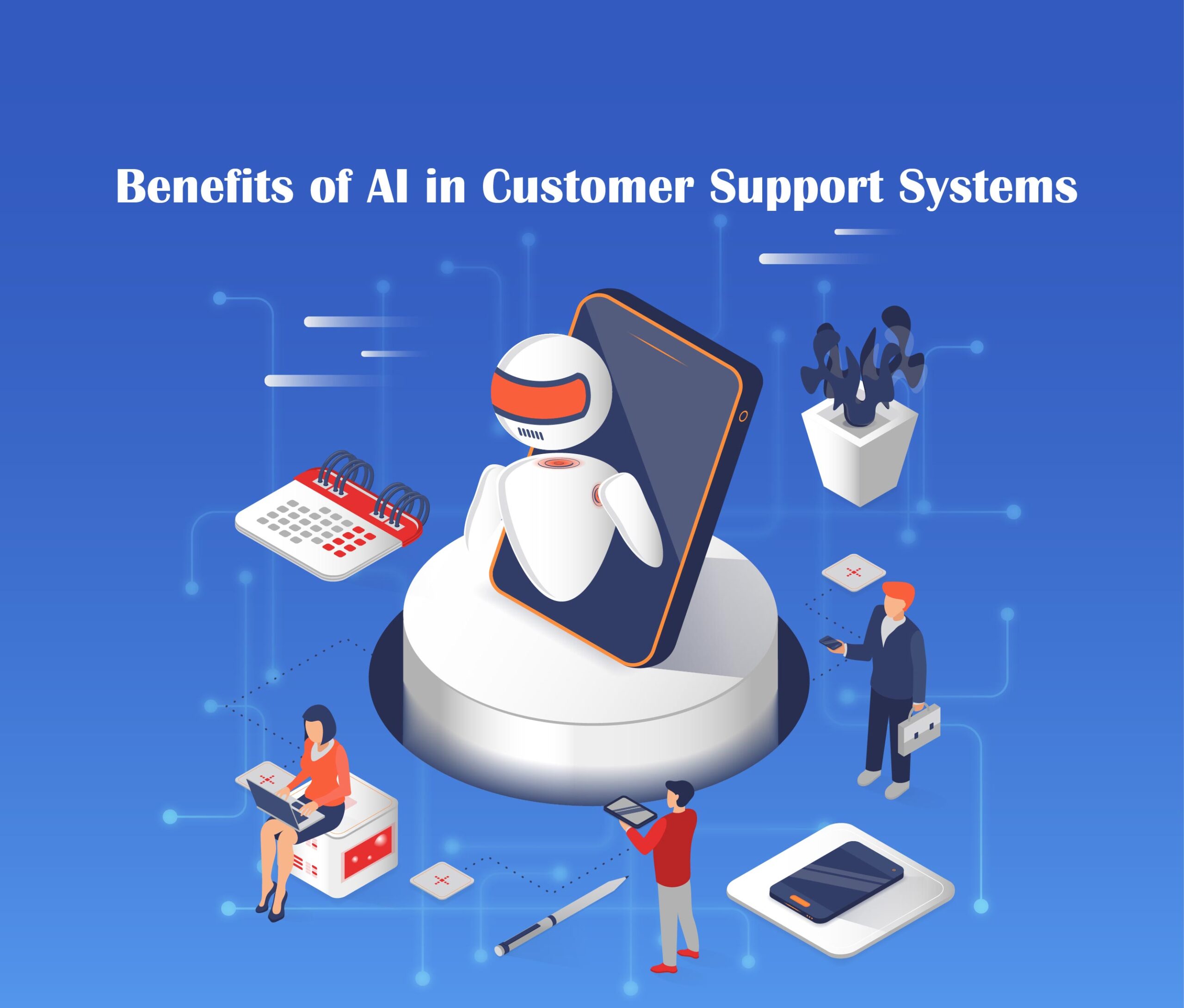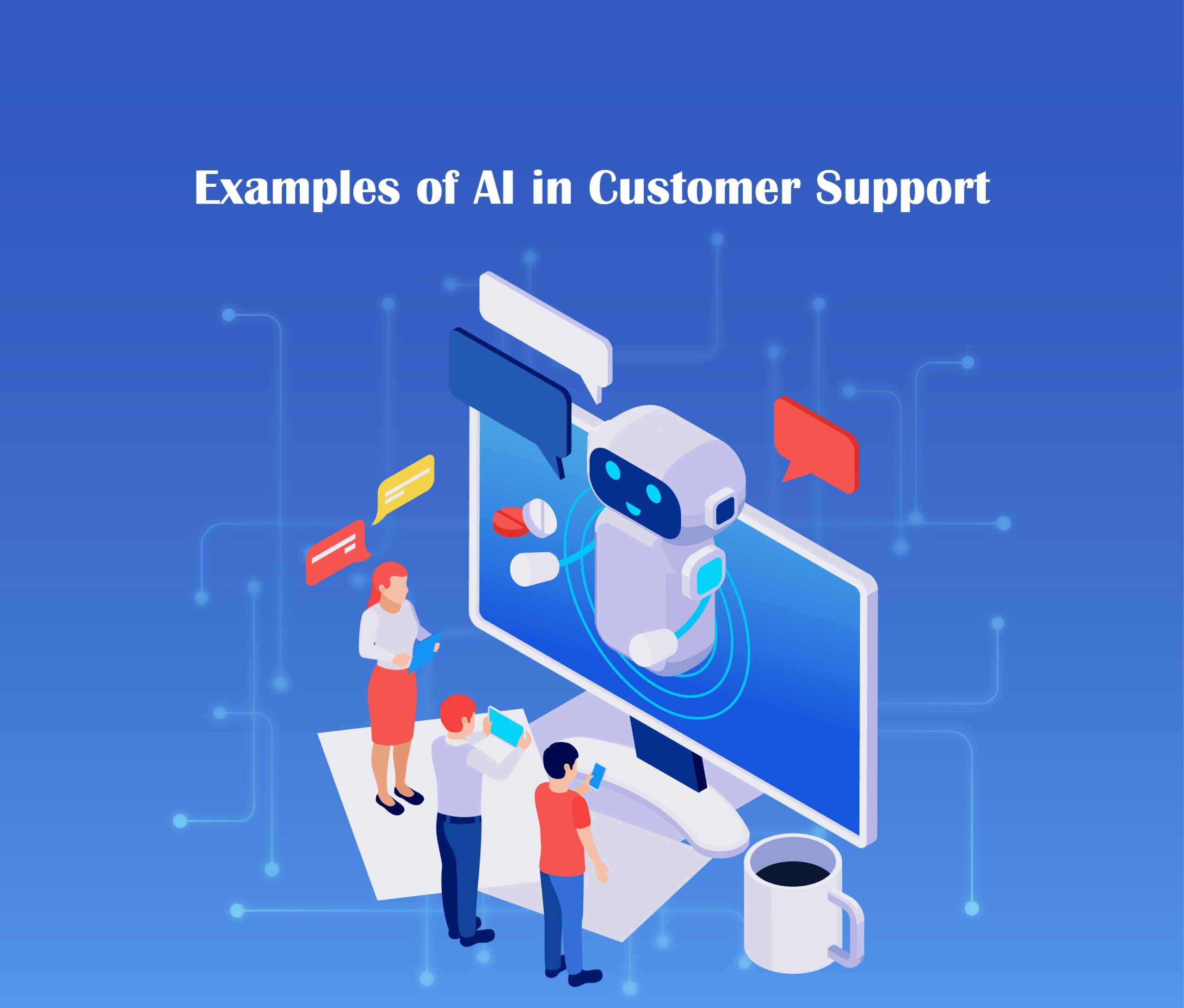With the constant evolution of technology, artificial intelligence (AI) has emerged as a powerful tool in revolutionizing customer support. Gone are the days of long wait times and frustrating interactions with automated systems. AI systems are now capable of delivering personalized, efficient, and responsive customer support experiences. The role of AI in customer support has become increasingly important as businesses strive to provide exceptional service and meet the demands of their customers.
Let’s explore the various ways in which AI is shaping the future of customer support and the benefits it brings to both businesses and consumers.
Understanding AI in Customer Support
AI is utilized in customer service to enhance the overall customer experience and facilitate more engaging interactions with individuals. Tools such as chatbots and sentiment analysis aid support teams in optimizing their workflow, efficiently handling customer inquiries, and even predicting customer requirements beforehand.
When utilized effectively, the integration of AI in customer support has a profound impact on how your team engages with and caters to your customers’ requirements.
Benefits of AI in Customer Support Systems
The benefits of AI-powered customer support systems are immense and have the potential to revolutionize the way businesses interact with their customers. One of the primary advantages is the reduction in human error. Unlike human agents, AI systems are less prone to mistakes and can provide accurate information consistently. This ensures that customers receive the correct solutions to their queries and eliminates any misunderstandings.
Another benefit is the 24/7 availability of customer support. AI-powered systems can operate round-the-clock, providing immediate assistance to customers at any time. This improves customer satisfaction and allows businesses to cater to a global customer base without the need for large teams of human agents.
Furthermore, AI systems can overcome language barriers. They can be programmed to communicate and understand multiple languages, allowing seamless communication with customers from diverse backgrounds.
Applications of AI in Customer Support
AI has the potential to revolutionize the customer experience, whether you’re working in a contact center or out in the field. Here are a couple of instances to illustrate this transformative power:
- Content Generation: Generative AI can examine customer communications, extract pertinent information, and produce responses that resemble human replies to customer inquiries, resulting in enhanced response times and overall customer contentment.
- Chatbots: AI-driven chatbots can address fundamental customer queries, offer immediate responses, and aid in various tasks like overseeing order statuses, giving product suggestions, and resolving issues. Being accessible round the clock, they significantly reduce response durations and enhance the accessibility of customer service.
- Natural Language Processing (NLP): NLP is a powerful technology that empowers AI systems to comprehend and interpret human language. Its applications include customer sentiment analysis, customer needs identification, and delivering appropriate responses. NLP can be implemented in various platforms such as chatbots, voice assistants, and sentiment analysis tools.
- Sentiment Analysis: AI-driven sentiment analysis tools are utilized to track and evaluate customer feedback, reviews, and interactions on social media platforms in order to assess customer sentiment. This enables organizations to pinpoint areas in need of enhancement, address customer concerns, and offer tailored experiences that align with customer preferences.
- Predictive Analytics: AI-powered predictive analytics leverages customer data to forecast customer requirements, behavioral trends, and possible challenges. This enables organizations to anticipate and address customer issues proactively, optimize resource allocation, and deliver tailored customer experiences.
Examples of AI in Customer Support
1. Chipotle’s AI Kitchen Management System
In 2022, Chipotle initiated a trial of a needs-based strategy for kitchen management. Using AI and machine learning, this method predicts ingredient and cooking quantities according to demand. The innovative kitchen management system tracks ingredient levels in restaurants, providing staff with timely prep and cooking instructions.
2. Netflix’s Machine Learning Strategy
Netflix is renowned for employing machine learning to tailor personalized recommendations for its viewers. Lately, the streaming giant extended its use of machine learning to enhance content by identifying the traits that contribute to its success.
3. Duolingo’s GPT-4 Educational Experience
Duolingo introduced Duolingo Max, leveraging GPT-4 for an enhanced language learning experience. Users can now refine skills through AI-powered features, practicing real-world conversations and learning from mistakes.
3 Essential Factors to Keep in Mind While Integrating AI in Customer Support
While AI offers notable advantages in customer service, adoption rates remain below half, with only 45% of service decision-makers utilizing AI, signaling a need for increased implementation. What hinders broader adoption?
- Impact on the workforce: The emergence of generative AI poses a skill gap for service leaders, with 66% acknowledging a lack of necessary skills in their teams. Service professionals fear job displacement by AI. When introducing AI, assure teams that it enhances productivity, emphasizing the continued importance of human skills for customer experience excellence.
- Trust and reliability issues: While AI technology is advancing quickly, it’s not flawless. Learning models use data that’s nearly two years old, raising concerns about accuracy in complex queries and handling sensitive information. Privacy and trust issues must be managed carefully for secure business and customer data, and grounding AI in trusted CRM data and knowledge base can address these challenges.
- Investment and implementation: Implementing AI, whether through development or adopting existing tools, demands substantial investments in technology and training. Small businesses may face challenges due to limited resources and technical expertise for successful AI deployment.
In a Nutshell
The integration of AI in customer support, particularly in chat customer support, has proven to be a game-changer. AI customer service and customer service automation have streamlined processes, enhanced efficiency, and elevated the overall customer experience. As organizations continue to embrace these innovative solutions, the synergy between technology and the human touch becomes evident, creating a harmonious balance that fosters customer satisfaction and loyalty. The era of AI-driven customer support is not just a trend but a strategic imperative, paving the way for a future where businesses can thrive by providing seamless, personalized, and efficient services. Embracing the power of AI in chat customer support will help businesses stay ahead in the dynamic landscape of customer service.


